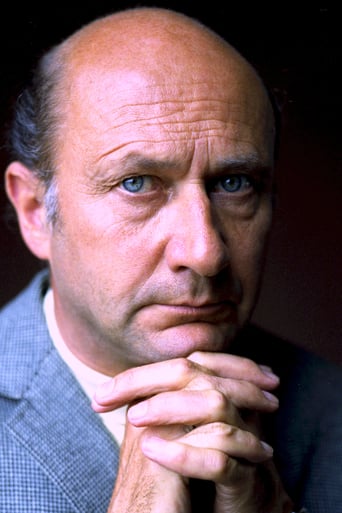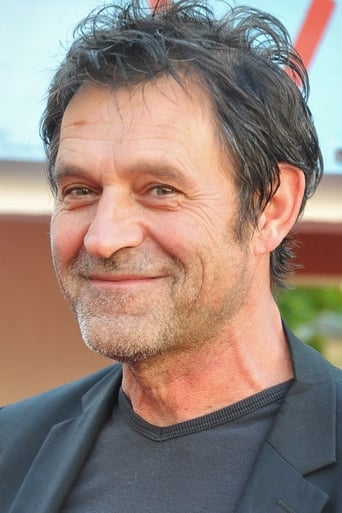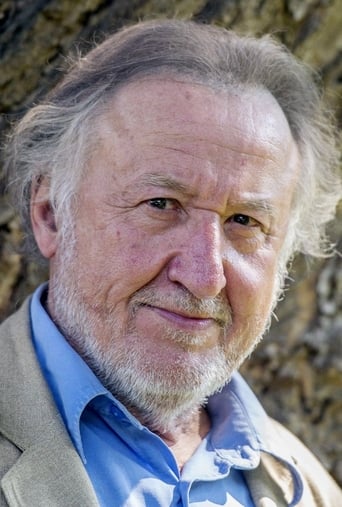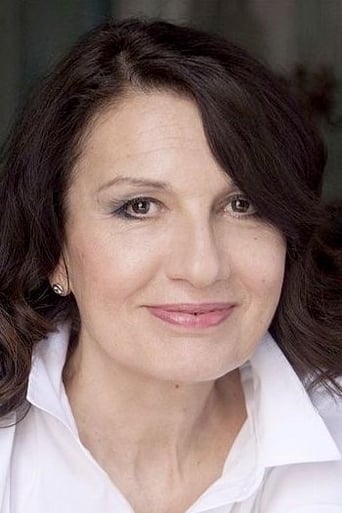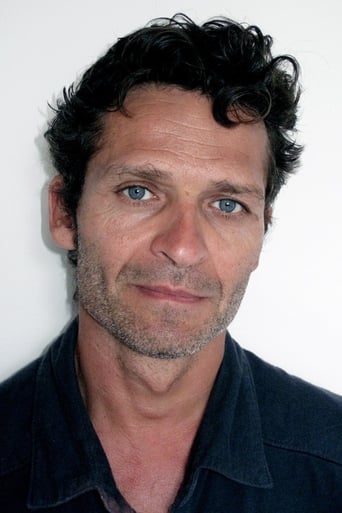Vashirdfel
Simply A Masterpiece
Spidersecu
Don't Believe the Hype
Loui Blair
It's a feast for the eyes. But what really makes this dramedy work is the acting.
Matho
The biggest problem with this movie is it’s a little better than you think it might be, which somehow makes it worse. As in, it takes itself a bit too seriously, which makes most of the movie feel kind of dull.
aurelien-francois-dory
The film unforgettable opening which switches back and forth between scenes of a concert at the Hanoi Opera and a platoon's last stand against the Vietminh in the dead of the night, set the tone for the rest of the movie. This is a slow pace melancolic and factual depiction of the fall of the colonial presence in Indochine in the early 50's. Whilst adopting the perpective of french soldiers, the movie never falls into the trap of naive patriotism. Instead, it serves as a tribute to the lost lives of french soldiers, many of which came from the colonies. The soundtrack is composed by Georges Delerue, one of the most famous film composer of this era. He notably composed the score for 'Le Mépris' and in many ways the movie slow and tragic unfolding reminded me of 'Le Mépris' by JL Godard (1963). This is not a film I would recommend to everyone. It is a rare account of a military disaster and of the fall of the french colonial empire: a melancolic movie teinted by regrets.
Visually, the movie is splendid, it shows hypnotic battle scenes, sometimes taking place in complete silence like shadow play on the theatre of a hill, only sparsely lit by bright explosions of mortar. The violence is suggested rather than explicitly shown. The movie makes use of beautiful long shot in order to show the breathtaking scenery where the troops await their fate. In that regard the story succeeds in delivering a looming sense of doom as the viewer is increasingly aware that Dien Bien Phu is forming into a deadly trap for the numerous french troups which have become isolated from the world. There are romantic undertones in the showing of men lost in monumental natural setting against which they are powerless, the theatre of french colonisation being swept away by the monsoon, and the Vietminh represented as a swift army of shadows.
The movie has flaws, the length is one of them. Another possible issue people may have with it, is the tone which is difficult to pin down: at times the movie feels like a documentary and at times, an introspective epic. Overall, it is better to have some background on french cinema and the Indochine conflict before diving into this one. French films often refuse to deliver a clear message at the end of the movie. This is also the case of this movie and you won't find an obvious moral message here. Instead, the movie is about nuance and seems to pride itself in silence and its ghostly atmosphere. If you liked the movie you would probably also enjoy another of Schoendoerffer's work 'Le crabe Tambour' (1976). If you are rebutted by the weight of an epic war drama, I would recommend watching Verneuil's 'Un singe en Hiver' (1962) which captures the spirit of that era in a completely different setting and more lighthearted mood.
minutte
This movie needs some background knowledge of the colonial European history, mainly the french one, to be fully appreciated. The director, Schoendorffer, was an army cameraman sent to Dien Bien Phu, and one of the characters, Howard R. Simpson, was an US correspondent in Indochina and wrote an interesting book: "Dien Bien Phu: The Epic Battle America Forgot", worth to read.Schoendorffer was prisoner after the battle and sent to Vietminh concentration camps where he survived after another cameraman from the Red Army meet him.He is the narrator's voice.What caught first my attention in this movie is that if you were serving in the army, it puts you right from the beginning in the atmosphere of a regular soldier spending time in maneuver and camp exercises.Guys on the field, some artillery, some air force, and some shouting in the background.Nothing spectacular, absolutely no epic, just like you're back in the military.At a certain point mortars fire is increasing, and shouting escalating, and that's the start of the battle.And you are in the mud, bleeding bodies and dead around you.It's just slightly over the level of raw documentary. So it's easy to feel close to the guys on the battlefield.Some Thai volunteers are shown, alongside Vietnamese, African troops, paratroopers, legionnaire, regular infantry, etc.Quite realistic photography and not like "in the movies". The Vietminh artillery made landing impossible, the place was isolated and only parachutist support is possible. Hills all around, it's often cloudy and Vietminh troops keep until the end hidden by their camouflage strategy.Nguyen Giap opted for an intense, moving and steady mortar bombing, backed by supplies and troops supported by China.Instead of a fierce battle were the tactics of the french general could had been superior.But that's no the point of the movie. Because, scenes at the ground, depicting the evolution and worsening of the battle, are alternated with the situation as seen from Hanoï. In this part, there's a reconstitution of the colonial french time, the Vietnamese, the Europeans, the colorful variety of uniforms. A violinist comes to the city for a gala concert.Life keeps going on at the same pace, while in the meantime soldiers are being sacrificed in Dien Bien Phu.A symbolic way to show how the politics were already wanting to leave Indochina, but at the same time they wanted a nice exit, with military bravery and honors, a la legionnaire. The nice violinist lady has a relative who is captain and they meet with other soldiers at a bar where some talks give an insight on the situation and the meaning of the battle, which appears more and more like a strategical non-sense.Soldiers are shown doing their job and there's nothing theatrical, just few quaint words about military duty's spirit and a somewhat "old school" sense of bravery.But in the 50's that was still very alive in the french military.So it stays in context. Talks between soldiers are fully understood to people familiar with french army mind and traditions.Otherwise it works like an insight.The movie is somewhat biased as an ode to Indochina and its people itself, which is a point of view debatable.Ho Chi Minh was, despite being communist, an independents and French were foreign rulers.Yet, that point of view and the kind of relation of Vietnam to french culture is represented by the boss of the local paper in Hanoï.All in all, an excellent movie, even if not accessible to a non-informed public.
kvmjohan
Well... I guess that I really did like this movie in one way.. and in antoher way I really disliked it.Basically one MAJOR!!! thing is missing in it.. Vietnamse soldiers, Vietmihn to be exact.We get a good look at them in the end once the french have given up but that is just about it.You might argue that this aspect of the movie should be true that you are indeed fighting some sort of an "unseen" enemy, but that is simply not true in the case of Dien Bien Phu.Let me elaborate some what on that point, several forages and attacks were made from the French in futile attempts to roll up and out the enemy (i.e. a lot of close combat and SEEN enemies).Several human wave attacks were launched against the French (most unsuccesfull though).Finally the Vietmihn managed to dislodge the French soldiers by basically trenching their way to them, foot by foot, yard by yard.At some points of the battle is somewhat more resembled a WWI scenario more than jungle combat.I feel that the movie gave us a fairly good view of the French parts.. but just where the hell did the Viets go?
Gilles Tran
The French have done few films about their own Vietnam war. Schoendorffer has done two of them, the 317th Platoon and Dien Bien Phu, the latter about the 1954 battle where the French army was defeated and lost the war. This movie was a sort of answer to Oliver Stone's Platoon and its hand-held cinematography and "realistic" shooting et setting strongly evokes the recent US war movies. However it goes little beyond that (war is dirty, people did their best etc.). It may serves as a useful reminder of this war (it is quite forgotten, even in France) and as a touching tribute to the people who fought this doomed and dubious battle. It's more an interesting attempt than a real success as a movie.
